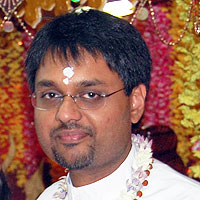We often hear it being said that there are many pathways to God and this is preached and propagated by many who may have their own agenda for preaching this ideology. While in a real sense this statement is true, the proponents of this statement may have a completely different meaning and motive than what is the true philosophy behind this utterance from Shri Krishna.
It is a noble gesture on the path of many to wish peace, unity and harmony to all of humanity, regardless our nationality, religious persuasion, race or ethnicity. The idea of the statement that all pathways lead to God is meant to create religious tolerance and acceptance. Therefore, it is preached by many that the religion that we practise, the form of God that we worship, the philosophy that we believe in and the rituals that we practise will all take us to the same place, which is to Godhead.
While unity and harmony among mankind is desired, it cannot be founded upon and indeed flourish upon misunderstanding and false teachings. Respect for all is not built upon compromise of our beliefs but rather an acceptance and tolerance for the difference of others, recognition of the presence of God in each person and complete adherence to the pristine and orthodox teaching of our way of life, the eternal and timeless principles of Sanatan Dharma.
In Bhagwad Gita Shri Krishna speaks about the different pathways to God; namely Gyaan Yoga, Bhakti Yoga and Karma Yoga. These are three different attitudes and approaches that can take us to the supreme. These pathways are not the same as world religions and so it is clear that when Shri Krishna speaks about different pathways to reaching God he is referring to the three Yogas and not various belief systems.
Every man has the right to choose his way of life; however, according to the teachings of Sanatan Dharma our pursuit of God should be guided by action, knowledge and devotions. Therefore all practices in which we engage should be an expression of Gyaan, Bhakti and/or Karma. Therefore when we sing bhajan and kirtan we are pursuing God through Bhakti; when we engage in unmotivated action and perform our duty we are pursuing God through Karma and when we reflect on the glories of God and contemplate on scriptures we are pursuing God through Gyaan.
As Hindus we should be very careful never to send the wrong message that we believe in the practices of other world religions. We may believe in their right to choose and practise; however we must also acknowledge that many of the practices of different world religions conflict with the fundamental beliefs of ours. How do we then live in a society where there are obvious and irreconcilable differences in beliefs?
We build our relationships on those dimensions of our lives that are similar while we each in our own groups engage in our personal practices. Compromise of our beliefs is not the way.
By Pt. Jaidath Maharaj, President, Swaha


